
by Marie Arick | Jan 21, 2021

Marie Arick, UF/IFAS Extension Liberty County
Marie Arick is in her second year as the UF/IFAS Liberty County Extension Director and 4-Agent. She also is the Family and Consumer Sciences Agent for both Liberty and Calhoun Counties. Marie has been with University of Florida IFAS since 2015, originally serving as the Family and Consumer Sciences Agent in Jackson County. She received her B.S. in Exercise Science and M.S. in Health Promotion from Mississippi State University. Her Extension specialty areas are health, wellness, food and nutrition, and 4-H youth development.

Marie Arick, Liberty County 4-H
Marie has provided many nutrition, food safety, and health and wellness educational programs/events including A Healthy Table Cooking School, Artisanal Cheese Making, Prevent T2: The National Diabetes Prevention Program, First-time Homebuyer, and the Annual Heart and Sole 5K. Her programming efforts in 4-H have included Food Challenge, Culinary Arts, Leadership, Community Service, and a variety of day camps and residential camps. Before joining UF/IFAS, Marie was employed with Texas A & M AgriLife Extension Service, where she was the Eastland County Extension Director and Family and Consumer Sciences Agent while also supporting 4-H programming.
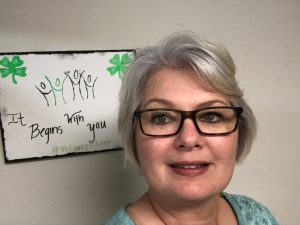
Marie Arick, UF/IFAS Extension Liberty County
Marie shares what she enjoys most about her career: “Being an Extension Agent is such a rewarding career, not only do I provide research-based education in my community, but I also reap the reward of watching participants gain knowledge, learn new skills, and apply those skills. I love having people share how they have improved their lives or used what they have learned. Some examples are a positive health outcome, achieving home ownership, successfully competing in a judging competition, or learning to prepare a new recipe.”
Contact Marie at 850-643-2229, jmarick@ufl.edu, or at her office located in the Liberty County Civic Center at 10405 NW Theo Jacobs Way, Bristol.

by Marie Arick | Mar 28, 2020
Monitoring during COVID-19 to flatten the curve; let’s focus on what we can do.
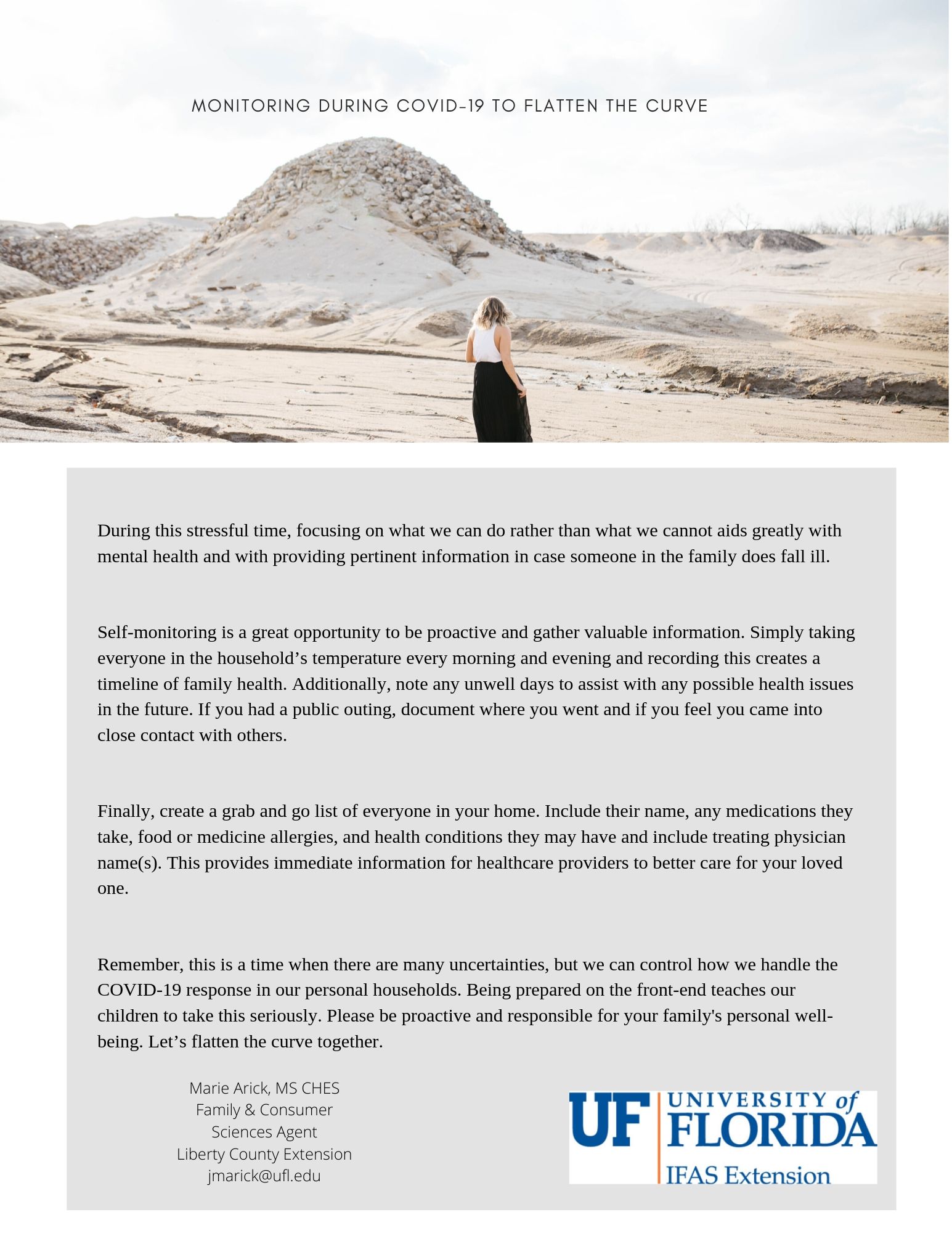
Flatten the Curve

by Marie Arick | Mar 28, 2020
Preventing the spread of illness is a high priority. It’s easy to overlook some high traffic areas.
Help prevent the virus and bacteria spread with this nightly cleaning ritual.
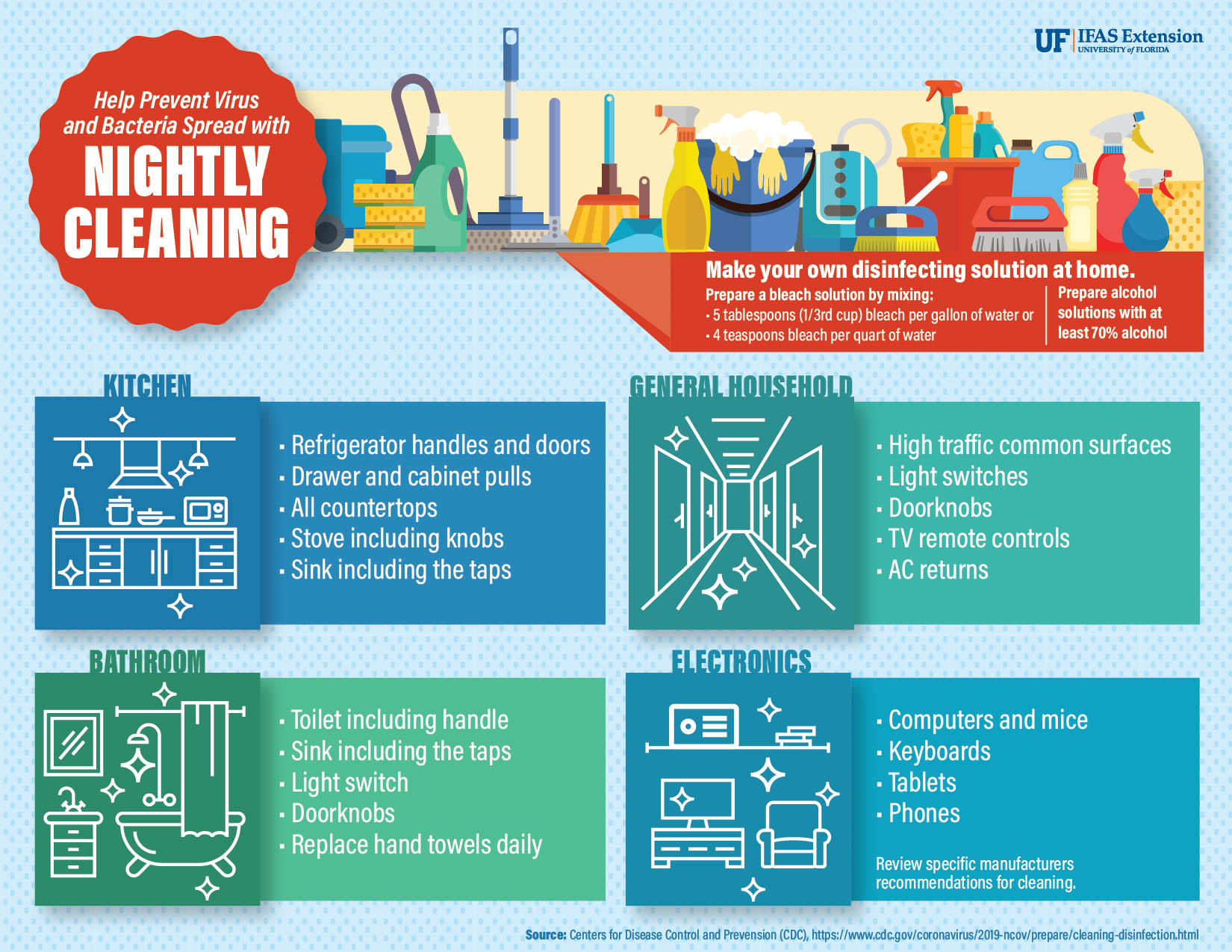
Tips to help prevent virus and bacteria from spreading
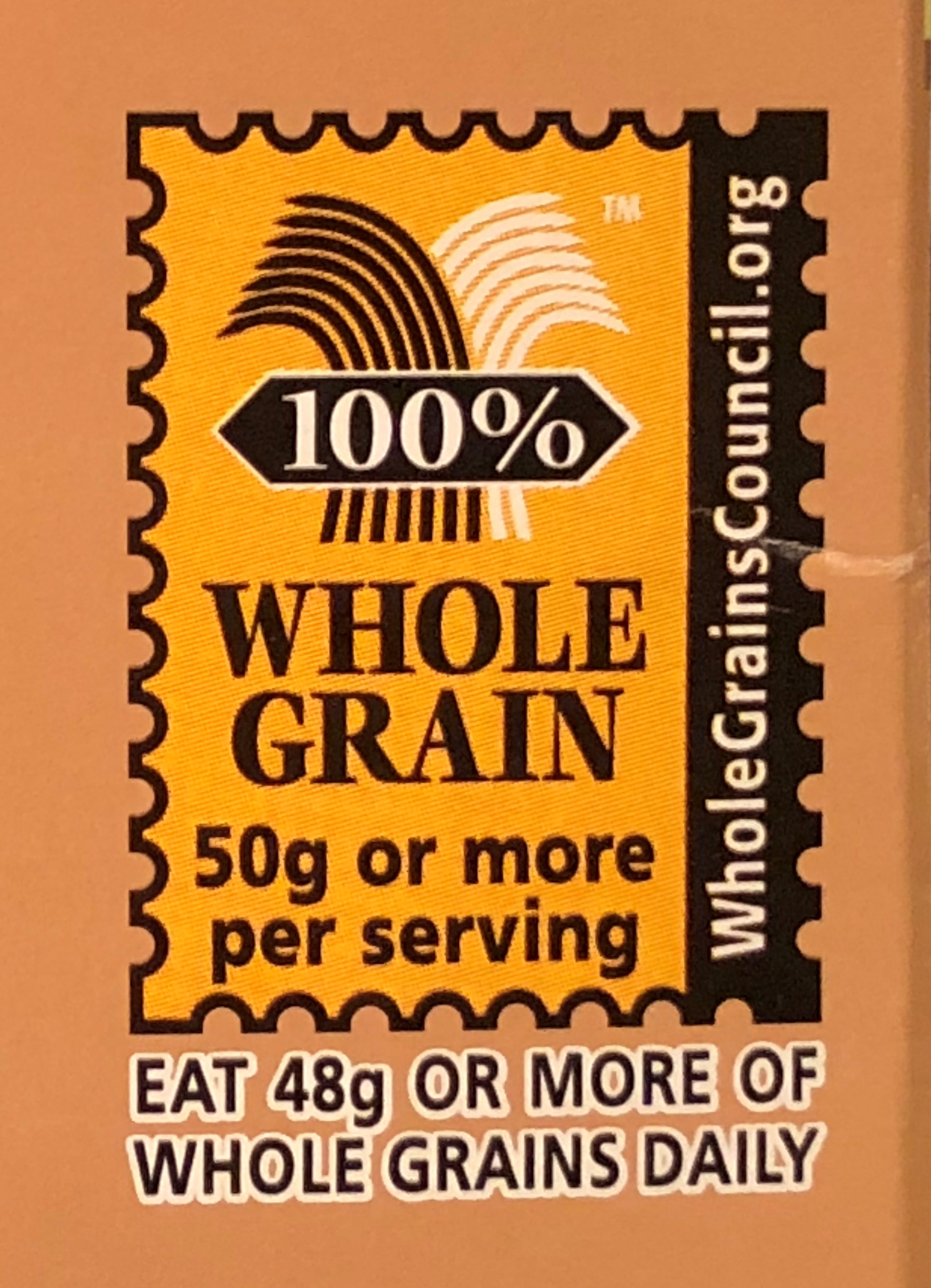
by Marie Arick | Aug 23, 2018
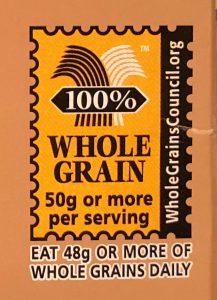
Photo credit: Marie Arick
Many Americans are more aware of whole grain food consumption as part of a healthy meal plan. In fact, the International Food Information Council’s 2015 survey found that 67% of those surveyed reported reading product labels for whole grains when shopping for packaged foods.
So, what is a whole grain? A whole grain must contain the germ, the bran, and the endosperm in the same state as it was in the field prior to harvest. Generally, most associate fiber with whole grains. In contrast, a refined grain lacks the germ and the bran that contain the fiber, B vitamins, antioxidants, and minerals. Take whole wheat, for example – it contains the trace minerals iron, zinc, copper, and magnesium, antioxidants, folate, and the following B vitamins – niacin, thiamine, and riboflavin.
Why choose whole grains? The fiber content can help to maintain a healthy weight, as it bulks once consumed, and can make one feel fuller, hence consuming fewer calories. Additionally, the fiber can aid with constipation. Other benefits of eating a diet rich in whole grains include decreasing the risk of developing type 2 diabetes, heart disease, and some forms of cancer due to the nutritional content, namely the antioxidant properties.
How much is enough? Children ideally should consume two servings minimum and adults three servings minimum each day. It is ideal for at least half of the grains you consume to be whole grains. Look for the 100% Whole Grain stamp on labels while shopping. It is a now on over 12,000 products, including cereals, breads, chips, flour, pasta, and so much more, in 58 countries.
Understanding what whole grains are and why choosing them can aid with health and well-being is important. Challenge yourself to look for the whole grain stamp and increase your daily intake, for your health.
Resources
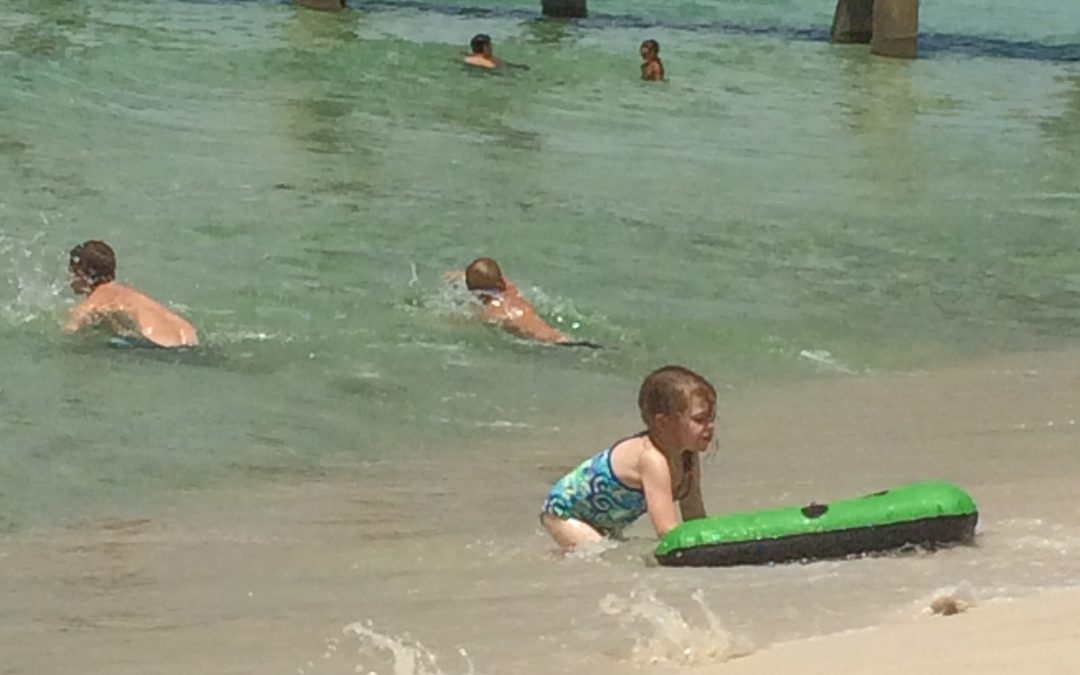
by Marie Arick | May 21, 2018

Always supervise children closely around water.
Photo credit: Marie Arick
Do you have firm water safety practices? Are you a strong swimmer? Do you know Cardiopulmonary Resuscitation (CPR)?
Each May, as the temperature rises, the gravitation to fun outdoor water activities begins. Numerous partners, including the American Red Cross and National Recreation and Park Association, promote Water Safety Month each May.
Encouraging conversations regarding water safety and swimming rules is just part of the resources provided to the public. Promotion of swimming lessons and the use of life jackets as well as basic CPR training is also encouraged. “Florida leads the country in drowning deaths of children ages 1-4 years,” according to the Florida Department of Health. The USA Swimming Foundation states “no child is ever water safe,” rather, they promote swimming lessons to aid in making a child safer in the water. Children should always be supervised by CPR-trained and strong swimming adults while playing in or around water. If you are not a strong swimmer, ask another adult that is to accompany you.
As the supervising adult, create a set of water safety rules and enforce them. NO EXCEPTIONS! Educate yourself and children regarding water safety and do not allow horseplay. If children are not strong swimmers, have them wear a swim vest and request they stay in an area close to you for additional ease of supervision. If you, as the adult, need a bathroom break, everyone needs a bathroom break, meaning everyone exits the pool/water area and no one is left behind. Learn basic CPR and keep a cell phone available to call for help if necessary. Never assume other people are watching as well.
Being proactive can prevent a tragedy. Remember, the basics of water safety and having a plan can be lifesaving. Establish your water activity rules, review them prior to each outing, enforce them, and enjoy a safe summer full of fun water activities.












